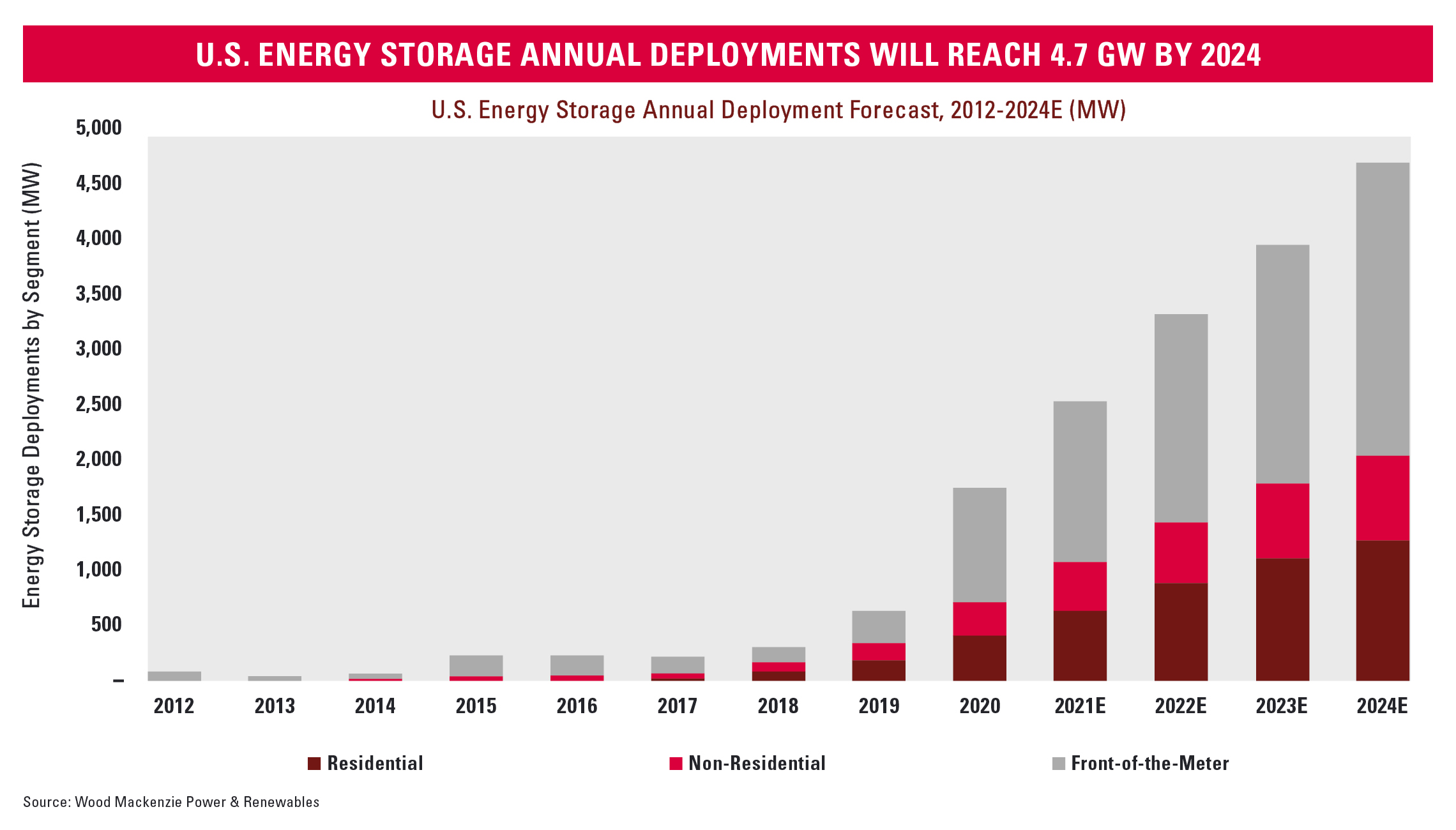ENERGY STORAGE
Power disruption can happen due to generation, transmission malfunctions or weather-related outages. Energy storage is a critical element that bridges the gap when grid power is interrupted.
Energy needs continue to grow at peak times during the day. As this growth continues and traditional generation is replaced with renewable resources, energy storage is used to support peak energy demand periods and gaps in generation supply. When there are power outages, energy storage becomes the last line of defense, ensuring critical infrastructure remains operational, bridging the gap until generation and transmission can be restored.
Energy storage operators vary from behind the meter commercial applications to in front of the meter utility owned assets. Total cost of ownership (TCO) varies by value stack goals and specific applications, but return on investment (ROE) continues to improve as conversion and storage products get more efficient and support longer lifespan. EnerSys® helps partners overcome these challenges with a worldwide footprint and local infrastructure. We install reliable energy storage and conversion solutions and deliver maintenance and end-of-life recycling processes that support your site deployments.
Energy storage systems are evolving as varying applications continue to develop new size requirements. Since system applications vary in duty cycle and usage value stack changes, new demands are placed on these systems so they must be adaptable and scalable.

When there are power shortages, renewable generation variation or unplanned power outages, energy storage systems supply the grid or local area power to reinforce critical infrastructure elements including safety systems. The system counts on batteries and electrical conversion equipment to operate flawlessly and quickly, therefore an insurance policy that is only as good as the batteries and conversion equipment.
We work to continually advance our energy storage offerings to provide greater reliability, longer service life and reduced maintenance. Our Thin Plate Pure Lead (TPPL) technology products with high energy density, optimized life and reduced maintenance support all applications and usage profiles.
RANGES FOR ENERGY STORAGE
With a choice of many batteries designed specifically to support energy storage, the EnerSys® PowerSafe® battery ranges let you select the best solution for your application.
Batteries
EnerSys Services
From project initiation to end-of-life, our global suite of services supports your backup power needs while our global design, engineering and service specialists are ideally positioned to support your projects from conception and installation to on-site maintenance and after-sales service.